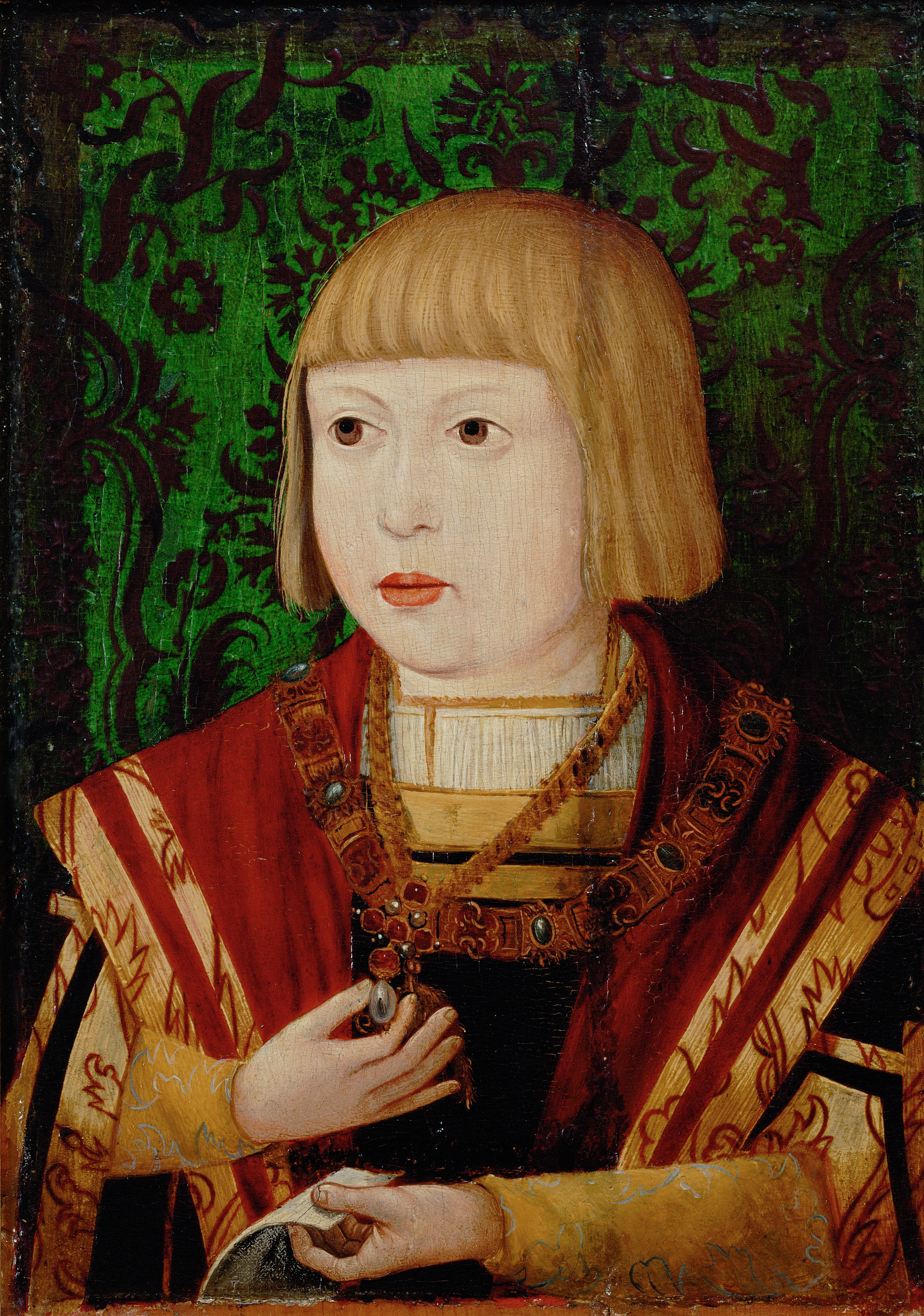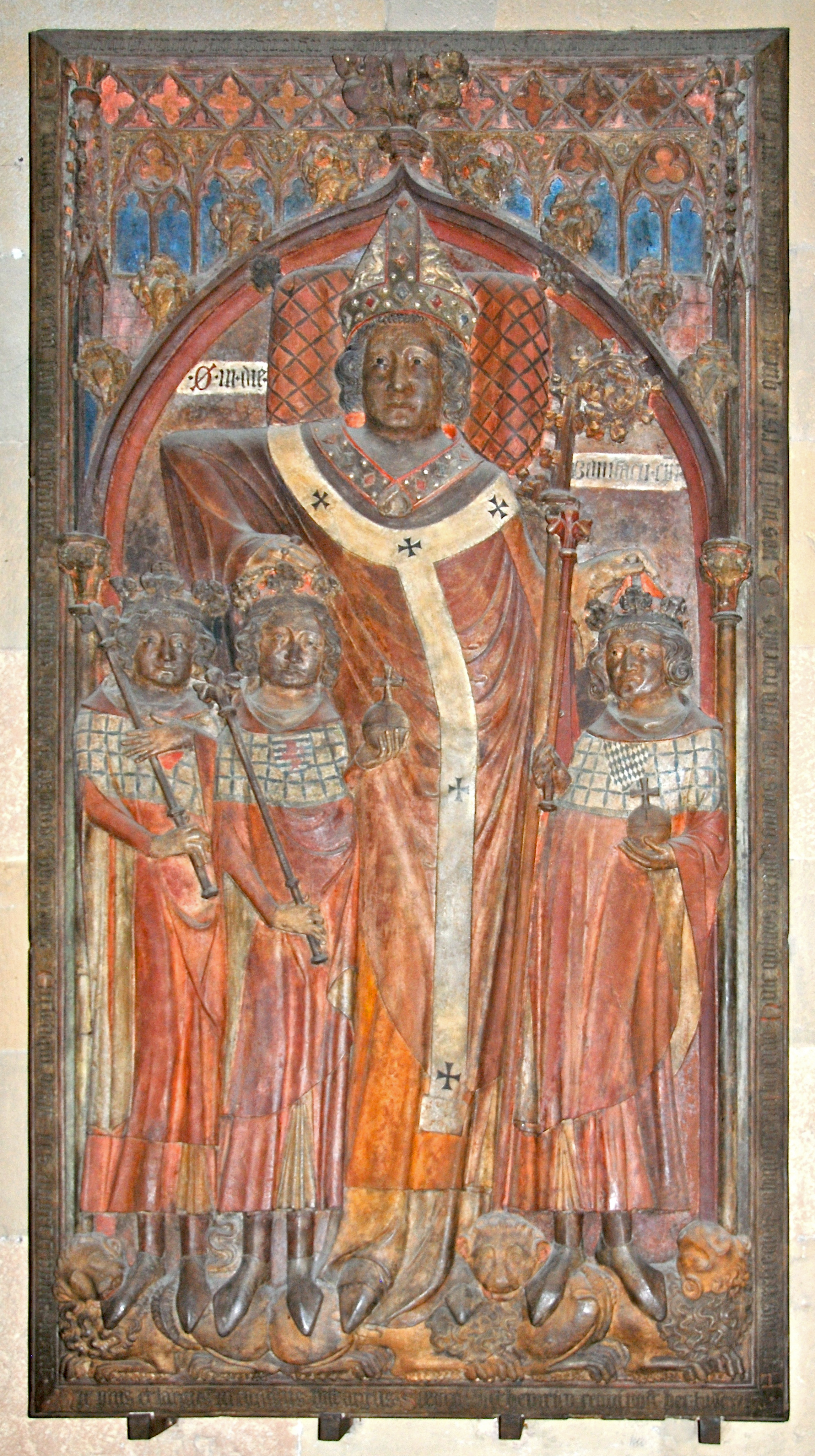|
Reichshofrat
The Aulic Council ( la, Consilium Aulicum, german: Reichshofrat, literally meaning Court Council of the Empire) was one of the two supreme courts of the Holy Roman Empire, the other being the Imperial Chamber Court. It had not only concurrent jurisdiction with the latter court, but in many cases exclusive jurisdiction, in all feudal processes, and in criminal affairs, over the immediate feudatories of the Emperor and in affairs which concerned the Imperial Government. The seat of the Aulic Council was at the Hofburg residence of the Habsburg emperors in Vienna. History The Aulic Council (from the Latin ''aula'', court in feudal language, in antiquity a Hellenistic type of grand residence, usually private) was originally an executive-judicial council for the Empire. Originating during the Late Middle Ages as a paid Council of the Emperor, it was organized in its later form by the German king Maximilian I by decree of 13 December 1497. It was meant as a rival to the separate Imperi ... [...More Info...] [...Related Items...] OR: [Wikipedia] [Google] [Baidu] |
Holy Roman Empire
The Holy Roman Empire was a political entity in Western, Central, and Southern Europe that developed during the Early Middle Ages and continued until its dissolution in 1806 during the Napoleonic Wars. From the accession of Otto I in 962 until the twelfth century, the Empire was the most powerful monarchy in Europe. Andrew Holt characterizes it as "perhaps the most powerful European state of the Middle Ages". The functioning of government depended on the harmonic cooperation (dubbed ''consensual rulership'' by Bernd Schneidmüller) between monarch and vassals but this harmony was disturbed during the Salian period. The empire reached the apex of territorial expansion and power under the House of Hohenstaufen in the mid-thirteenth century, but overextending led to partial collapse. On 25 December 800, Pope Leo III crowned the Frankish king Charlemagne as emperor, reviving the title in Western Europe, more than three centuries after the fall of the earlier ancient West ... [...More Info...] [...Related Items...] OR: [Wikipedia] [Google] [Baidu] |
Maximilian I, Holy Roman Emperor
Maximilian I (22 March 1459 – 12 January 1519) was King of the Romans from 1486 and Holy Roman Emperor from 1508 until his death. He was never crowned by the pope, as the journey to Rome was blocked by the Venetians. He proclaimed himself Elected Emperor in 1508 ( Pope Julius II later recognized this) at Trent, thus breaking the long tradition of requiring a Papal coronation for the adoption of the Imperial title. Maximilian was the son of Frederick III, Holy Roman Emperor, and Eleanor of Portugal. Since his coronation as King of the Romans in 1486, he ran a double government, or ''Doppelregierung'' (with a separate court), with his father until Frederick's death in 1493. Maximilian expanded the influence of the House of Habsburg through war and his marriage in 1477 to Mary of Burgundy, the ruler of the Burgundian State, heir of Charles the Bold, though he also lost his family's original lands in today's Switzerland to the Swiss Confederacy. Through marriage of his son ... [...More Info...] [...Related Items...] OR: [Wikipedia] [Google] [Baidu] |
Reichshofrat
The Aulic Council ( la, Consilium Aulicum, german: Reichshofrat, literally meaning Court Council of the Empire) was one of the two supreme courts of the Holy Roman Empire, the other being the Imperial Chamber Court. It had not only concurrent jurisdiction with the latter court, but in many cases exclusive jurisdiction, in all feudal processes, and in criminal affairs, over the immediate feudatories of the Emperor and in affairs which concerned the Imperial Government. The seat of the Aulic Council was at the Hofburg residence of the Habsburg emperors in Vienna. History The Aulic Council (from the Latin ''aula'', court in feudal language, in antiquity a Hellenistic type of grand residence, usually private) was originally an executive-judicial council for the Empire. Originating during the Late Middle Ages as a paid Council of the Emperor, it was organized in its later form by the German king Maximilian I by decree of 13 December 1497. It was meant as a rival to the separate Imperi ... [...More Info...] [...Related Items...] OR: [Wikipedia] [Google] [Baidu] |
Hofburg
The Hofburg is the former principal imperial palace of the Habsburg dynasty. Located in the centre of Vienna, it was built in the 13th century and expanded several times afterwards. It also served as the imperial winter residence, as Schönbrunn Palace was the summer residence. Since 1946, it is the official residence and workplace of the president of Austria. Since 1279, the Hofburg area has been the documented seat of government.Aeiou-Hofburg-English , "Hofburg, Wien" (history), ''Encyclopedia of Austria'', Aeiou Project, 2006. The Hofburg has been expanded over the centuries to include various residences (with the ''Amalienburg'' and the Albertina), the imperial chapel (''Hofkapelle'' or ''Burgkapelle''), the [...More Info...] [...Related Items...] OR: [Wikipedia] [Google] [Baidu] |
Ferdinand I, Holy Roman Emperor
Ferdinand I ( es, Fernando I; 10 March 1503 – 25 July 1564) was Holy Roman Emperor from 1556, King of Bohemia, Hungary, and Croatia from 1526, and Archduke of Austria from 1521 until his death in 1564.Milan Kruhek: Cetin, grad izbornog sabora Kraljevine Hrvatske 1527, Karlovačka Županija, 1997, Karslovac Before his accession as Emperor, he ruled the Austrian hereditary lands of the Habsburgs in the name of his elder brother, Charles V, Holy Roman Emperor. Also, he often served as Charles' representative in the Holy Roman Empire and developed encouraging relationships with German princes. In addition, Ferdinand also developed valuable relationships with the German banking house of Jakob Fugger and the Catalan bank, Banca Palenzuela Levi Kahana. The key events during his reign were the conflict with the Ottoman Empire, which in the 1520s began a great advance into Central Europe, and the Protestant Reformation, which resulted in several wars of religion. Although not ... [...More Info...] [...Related Items...] OR: [Wikipedia] [Google] [Baidu] |
Diet Of Worms (1495)
At the Diet of Worms (german: Reichstag zu Worms) in 1495, the foundation stone was laid for a comprehensive reform (''Reichsreform'') of the Holy Roman Empire. Even though several elements of the reforms agreed by the Imperial Diet (''Reichstag'') at Worms did not last, they were nevertheless highly significant in the further development of the empire. They were intended to alter its structure and constitutional ordinances in order to resolve the problems of imperial government that had become evident. Background During the 15th century, it became increasingly clear that the Holy Roman Empire needed an imperial reform. Opinions varied, ranging from the restoration of the absolute imperial power to an Imperial Government (''Reichsregiment'') of the electors. One of many proposals, for example, was the ''Reformatio Sigismundi''. Almost all the reform proposals advocated an Eternal Peace ('' Ewiger Landfriede''), as well as legal, judicial, tax and coinage regulations. From t ... [...More Info...] [...Related Items...] OR: [Wikipedia] [Google] [Baidu] |
Elector Of Mainz
The Elector of Mainz was one of the seven Prince-electors of the Holy Roman Empire. As both the Archbishop of Mainz and the ruling prince of the Electorate of Mainz, the Elector of Mainz held a powerful position during the Middle Ages. The Archbishop-Elector was president of the electoral college, archchancellor of the empire, and the Primate of Germany as the papal legate north of the Alps, until the dissolution of the empire in 1806. The origin of the title dates back to 747, when the city of Mainz was made the seat of an archbishop, and a succession of able and ambitious prelates made the district under their rule a strong and vigorous state. Among these men were important figures in the history of Germany such as Hatto I, Adalbert of Mainz, Siegfried III, Peter of Aspelt and Albert of Brandenburg. There were several violent contests between rivals for the archbishopric, and their power struggles occasionally moved the citizens of Mainz to revolt. The lands of the elect ... [...More Info...] [...Related Items...] OR: [Wikipedia] [Google] [Baidu] |
Archchancellor
An archchancellor ( la, archicancellarius, german: Erzkanzler) or chief chancellor was a title given to the highest dignitary of the Holy Roman Empire, and also used occasionally during the Middle Ages to denote an official who supervised the work of chancellors or notaries. The Carolingian successors of Pepin the Short appointed chancellors over the whole Frankish realm in the ninth century. Hincmar refers to this official as a ''summus cancellarius'' in ''De ordine palatii et regni'' and an 864 charter of King Lothair I refers to Agilmar, Archbishop of Vienne, as archchancellor, a word which also begins appearing in chronicles about that time. The last Carolingian archchancellor in West Francia was Archbishop Adalberon of Reims (969-988), with the accession of Hugh Capet the office was replaced by a ''Chancelier de France''. At the court of Otto I, then King of Germany, the title seems to have been an appanage of the Archbishop of Mainz. After Otto had finally deposed King Be ... [...More Info...] [...Related Items...] OR: [Wikipedia] [Google] [Baidu] |
Protestant
Protestantism is a Christian denomination, branch of Christianity that follows the theological tenets of the Reformation, Protestant Reformation, a movement that began seeking to reform the Catholic Church from within in the 16th century against what its followers perceived to be growing Criticism of the Catholic Church, errors, abuses, and discrepancies within it. Protestantism emphasizes the Christian believer's justification by God in faith alone (') rather than by a combination of faith with good works as in Catholicism; the teaching that Salvation in Christianity, salvation comes by Grace in Christianity, divine grace or "unmerited favor" only ('); the Universal priesthood, priesthood of all faithful believers in the Church; and the ''sola scriptura'' ("scripture alone") that posits the Bible as the sole infallible source of authority for Christian faith and practice. Most Protestants, with the exception of Anglo-Papalism, reject the Catholic doctrine of papal supremacy, ... [...More Info...] [...Related Items...] OR: [Wikipedia] [Google] [Baidu] |
Ewiger Landfriede
The ''Ewiger Landfriede'' ("everlasting ''Landfriede''", variously translated as "Perpetual Peace", "Eternal Peace", "Perpetual Public Peace") of 1495, passed by Maximilian I, German king and emperor of the Holy Roman Empire, was the definitive and everlasting ban on the medieval right of vendetta (''Fehderecht''). In fact, despite being officially outlawed, feuds continued in the territory of the empire until well into the 16th century. The ''Ewiger Landfriede'' graduated from the development of the peace movement (''Landfriedensbewegung''), which, after initial attempts in the 12th century, had its first significant success in the Treaty of Mainz in 1235. It was aimed primarily at the lesser nobles who had not kept pace with the process of development of the princely territories. Their propensity to feuding (''Fehdefreudigkeit'') increasingly went against the intent of the imperial princes and imperial cities to pacify and consolidate their territories. Claims were henceforth n ... [...More Info...] [...Related Items...] OR: [Wikipedia] [Google] [Baidu] |
Napoleon I
Napoleon Bonaparte ; it, Napoleone Bonaparte, ; co, Napulione Buonaparte. (born Napoleone Buonaparte; 15 August 1769 – 5 May 1821), later known by his regnal name Napoleon I, was a French military commander and political leader who rose to prominence during the French Revolution and led successful campaigns during the Revolutionary Wars. He was the ''de facto'' leader of the French Republic as First Consul from 1799 to 1804, then Emperor of the French from 1804 until 1814 and again in 1815. Napoleon's political and cultural legacy endures to this day, as a highly celebrated and controversial leader. He initiated many liberal reforms that have persisted in society, and is considered one of the greatest military commanders in history. His wars and campaigns are studied by militaries all over the world. Between three and six million civilians and soldiers perished in what became known as the Napoleonic Wars. Napoleon was born on the island of Corsica, not long aft ... [...More Info...] [...Related Items...] OR: [Wikipedia] [Google] [Baidu] |




.jpg)


